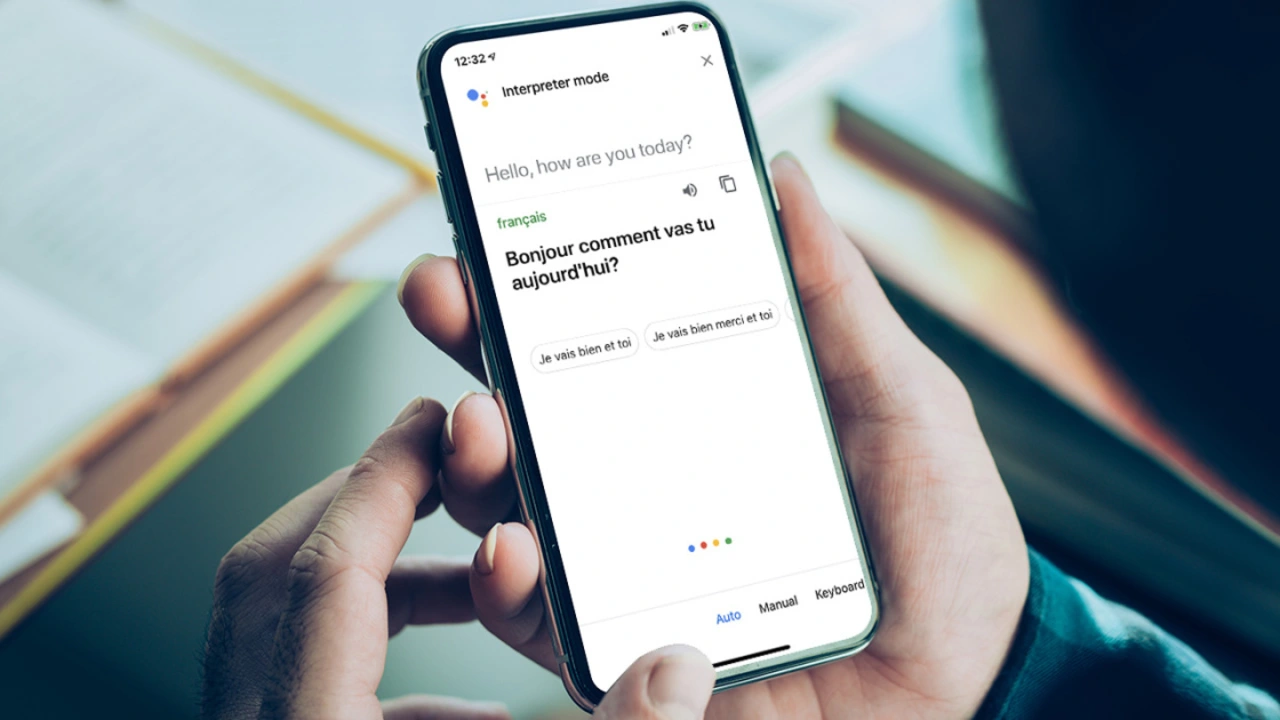What do you call a mobile in different languages?

Exploring the Different Names for Mobile Phones Around the World
Mobile phones have become an integral part of our lives, and their importance is reflected in the many different names they are given across the world. From “handy” in Germany to “telemóvel” in Portugal, mobile phones are called many different things depending on the language.
In English-speaking countries, the most popular name for a mobile phone is “cell phone”. The term “cell” is derived from the cellular network technology that mobile phones use to communicate. In the United States, the term “mobile” is also commonly used to refer to a phone.
In French, mobile phones are called “téléphones portables”. The literal translation of this term is “portable telephones”, which highlights the fact that these devices can be taken anywhere and used to make calls. This is in contrast to the landline phones which are typically fixed in one place.
In Spanish, mobile phones are known as “teléfonos móviles”. This term translates to “mobile phones” and emphasizes the fact that these devices can be moved around easily.
In Germany, mobile phones are referred to as “handys”. The origin of this term is unclear, but it is thought to be derived from the English word “handheld”, which is used to describe a device that can be held in one hand.
In Italy, mobile phones are known as “cellulari”, which is derived from the English word “cellular”. This term emphasizes the fact that mobile phones use the cellular network technology to communicate.
In Portugal, mobile phones are known as “telemóveis”. This term is a combination of the words “televisão” (television) and “móvel” (mobile), and it emphasizes the fact that mobile phones have the ability to receive and send television signals.
In Japan, mobile phones are known as “keitai”. This term is derived from the Japanese words “keitai denwa”, which literally translates to “portable phone”. This term emphasizes the portability of these devices.
In China, mobile phones are known as “shouji”. This term is derived from the Chinese word “shou”, which means “hand”. This term emphasizes the fact that these devices can be held and used with one hand.
Mobile phones have become an essential part of our lives, and they are known by many different names around the world. Whether they are called “cell phones”, “téléphones portables”, “teléfonos móviles”, “handys”, “cellulari”, “telemóveis”, “keitai” or “shouji”, these devices are universally recognized as an important part of our lives.
A Global Guide to the Different Ways to Say "Mobile Phone"
When traveling abroad, it's important to know how to properly refer to your mobile phone in the native language. Although the term "mobile phone" is the most commonly used phrase for a cellular device, there are other terms used in different countries and cultures. Here’s a quick guide to the different ways people around the world say "mobile phone".
France: Téléphone Portable
In France, you will hear the term téléphone portable to refer to a mobile phone. This phrase literally translates to "portable telephone" and is commonly used in France and in other French-speaking countries.
Germany: Handy
The Germans refer to their mobile phones as Handy. This word is derived from the English word "handheld" and is used throughout Germany and other German-speaking countries.
Spain: Teléfono Móvil
In Spain, you will hear the phrase teléfono móvil, which translates to "mobile phone". This phrase is commonly used in Spain and other Spanish-speaking countries.
China: Shǒujī
The Chinese refer to their mobile devices as shǒujī, which literally translates to "hand machine". This term is widely used in China and other Chinese-speaking countries.
Japan: Keitai Denwa
In Japan, the term keitai denwa is used to refer to a mobile phone. This phrase literally translates to "portable telephone" and is widely used in Japan and other Japanese-speaking countries.
India: Ḍhup Yantrā
In India, the term ḍhup yantrā is used to refer to a mobile phone. This phrase literally translates to "mobile device" and is widely used in India and other Indian-speaking countries.
South Korea: Hwal-lae
In South Korea, the term hwal-lae is used to refer to a mobile phone. This phrase literally translates to "hand phone" and is widely used in South Korea and other Korean-speaking countries.
Discovering the Unique Names for Mobile Phones in Different Languages
If you’re looking to find out what people call their mobile phones in different countries, you’ve come to the right place. From Germany to India, people have come up with a variety of unique names for their devices that are both representative of the local culture and language. Let’s explore some of the most popular names for mobile phones around the world.
Germany
In Germany, the name for mobile phones is “Handy.” This term is derived from the English word “handy,” which means convenient. The term “Handy” has become so popular in Germany that it is now used as the generic name for mobile phones regardless of brand or model.
India
In India, mobile phones are known as “Cell Phones” or “Cellphones.” This name is derived from the name of the technology that powers the devices, which is called “cellular technology.” The term “Cell Phone” has become so popular in India that it is now used as the generic name for mobile phones regardless of brand or model.
Spain
In Spain, the name for mobile phones is “Movil.” This term is derived from the Spanish word “movilidad,” which means mobility. The term “Movil” has become so popular in Spain that it is now used as the generic name for mobile phones regardless of brand or model.
Japan
In Japan, mobile phones are known as “Keitai Denwa,” which translates to “portable phone.” This name is derived from the Japanese words “keitai” (portable) and “denwa” (phone). The term “Keitai Denwa” has become so popular in Japan that it is now used as the generic name for mobile phones regardless of brand or model.
China
In China, mobile phones are known as “Shouji.” This term is derived from the Chinese word “shou,” which means “handheld.” The term “Shouji” has become so popular in China that it is now used as the generic name for mobile phones regardless of brand or model.
Russia
In Russia, the name for mobile phones is “Mobilnik.” This term is derived from the Russian word “mobil’nost’,” which means mobility. The term “Mobilnik” has become so popular in Russia that it is now used as the generic name for mobile phones regardless of brand or model.
France
In France, the name for mobile phones is “Mobile.” This term is derived from the French word “mobile,” which means “moveable.” The term “Mobile” has become so popular in France that it is now used as the generic name for mobile phones regardless of brand or model.
Brazil
In Brazil, the name for mobile phones is “Celular.” This term is derived from the Portuguese word “celular,” which means “cellular.” The term “Celular” has become so popular in Brazil that it is now used as the generic name for mobile phones regardless of brand or model.
How Do People in Different Countries Refer to Mobile Phones?
In the US and most of the English-speaking world, people typically refer to mobile phones as simply “phones” or “cell phones.” In other countries, however, the terms can vary. In India, for example, mobile phones are often called “cellular phones” or “hand phones.” In Japan, the term “keitai” is commonly used, while in South Korea the term “hand phone” is used.
In France, mobile phones are called “téléphones portables” or “téléphones mobiles.” Similarly, in Germany, the terms “Handy” or “Mobiltelefon” are used to refer to mobile phones. In Italy, the term “cellulare” is used, while in Spain, the term “móvil” is used.
In China, the term “shǒujī” is used, while in Russia, the term “мобильный телефон” is used. In Brazil, the term “celular” is used, while in Mexico, the term “teléfono celular” is used. In the Netherlands, the term “mobiele telefoon” is used, while in Sweden, the term “mobiltelefon” is used.
In Arabic-speaking countries, the term “Haitifoon” is used, while in Hebrew-speaking countries, the term “mobilim” is used. In Turkish, the term “cep telefonu” is used, while in Greek, the term “κινητό τηλέφωνο” is used. In Portuguese-speaking countries, the term “telefone celular” is used, while in Polish, the term “telefon komórkowy” is used.
Mobile phones are also referred to in other languages. In Indonesian, the term “telepon genggam” is used, while in Thai, the term “โทรศัพท์มือถือ” is used. In Vietnamese, the term “điện thoại di động” is used, while in Malay, the term “telefon bimbit” is used.
An International Look at the Different Terms for Mobile Phones
In today's digital age, mobile phones have become an essential part of our lives. Whether it's for business or pleasure, we rely on our phones to keep us connected, informed, and entertained. But did you know that the word "mobile" isn't the same in all countries?
In the United Kingdom, mobile phones are often referred to as "mobiles" or "cell phones." In Australia, they are known as "mobiles" or "mobile phones." In the United States, they are just called "cell phones." In India, they are often referred to as "mobile phones" or "handy phones." In Japan, they are called "keitai denwa," which translates to "portable phone." In France, they are referred to as "téléphones portables." In Germany, they are known as "Handy," and in Spain, they are called "móviles."
No matter where you go, it's clear that mobile phones are here to stay. In fact, over 5 billion people around the world are estimated to be using a mobile phone. This means that no matter which language you speak or which part of the world you live in, you're likely to have a mobile phone.
So, next time you're travelling abroad and you need to make a call, remember that you might have to ask for a "keitai denwa" or a "Handy" instead of a "mobile."
